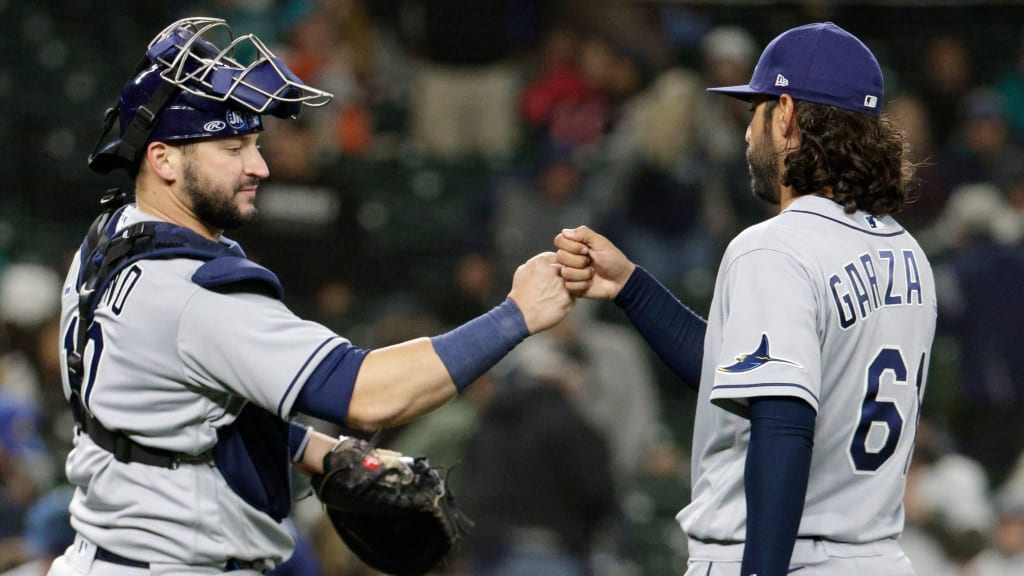
This story was excerpted from Adam Berry’s Rays Beat newsletter. To read the full newsletter, click here. And subscribe to get it regularly in your inbox.
ST. PETERSBURG -- During Spring Training, the Rays became the first Major League team to experiment with the PitchCom game-calling technology in a game. They only used it for two innings, with catcher Mike Zunino electronically sending signs to pitcher Phoenix Sanders, but it was a hit from the start.
MLB officially approved PitchCom just before this season began, though it was optional, and the Rays jumped on board. Everyone on Tampa Bay’s staff uses it. Zunino said Monday that calling pitches on the PitchCom transmitter, which then relays the call into a receiver in the pitcher’s hat and the caps of three teammates, has been “very seamless” and “become second nature.”
“Definitely a little different compared to the old baseball mindset, but it’s been very effective,” Zunino said.
Whether it’s Zunino or Francisco Mejía behind the plate, there haven’t been any noticeable issues so far. And it’s had one effect you might not even notice.
“I feel like the game’s sped up,” Rays ace Shane McClanahan said.
There are plenty of factors that affect the length of games, but one of them is pitchers’ pace. With that in mind, it’s impossible to ignore that the Rays -- with their full embrace of PitchCom -- are playing the quickest games in the Majors to this point.
Heading into Monday’s series opener against the Tigers, Tampa Bay’s average game time was two hours and 58 minutes. Detroit (2:59) and Oakland (3:00) were second and third, respectively, and nobody else was averaging three hours or less.
How is that related to PitchCom, which is designed primarily to prevent sign-stealing?
“I’m not looking at a card every time someone gets to second base,” McClanahan said. “It’s awesome. I like it, and I was really against it at first.”
Yes, McClanahan was a PitchCom skeptic at first. But as ESPN reported last week, many players have come around on the idea. Hey, if it works, what’s not to like?
“It’s a great tool. It simplifies the game. You’re not having to remember sign sequences in your head,” McClanahan said. “It just kind of takes the thinking out of a game where you really don’t want to think out there -- you just want to execute pitches -- so I think it’s been really beneficial.”
When teams started shifting their infielders, it was a huge story. When the Rays deployed the opener, manager Kevin Cash fielded questions about it everywhere they went. The widespread use of PitchCom is a massive change to a fundamental part of the way baseball has always been played, with catchers putting down fingers to call pitches, yet it’s almost flown under the radar by comparison.
But if it cuts down on sign-stealing and speeds up games? Yeah, it’ll catch on.
“I feel like we’re in an age of baseball now where there’s so much change. Whether it’s benefited the game or hurt the game, we’ve seen some things,” Zunino said. “I’m a little bit different, too, and we are as a club: We’re always looking for something innovative and new to try to help us, so I think we’re more accepting of trying new things. I think that’s why you see a lot more open-mindedness here.”
